The average cost of Lung Cancer Treatment in Herzliya approximately starts from USD 20000
Treatment cost
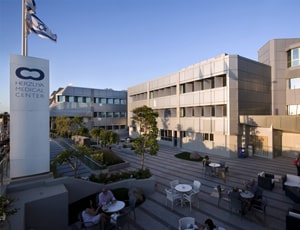
Apart from in-detail treatment procedures available, Herzliya Medical Center located in Herzliya, Israel has a wide variety of facilities available for International Patients. Some of the facilities which are provided by them are Accommodation, Airport Transfer, Interpreter, SIM, TV inside room. Also listed below are some of the most prominent infrastructural details:

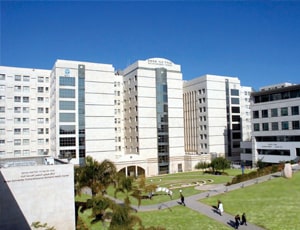
Rabin Medical Center located in Petah Tikva, Israel is accredited by JCI. Also listed below are some of the most prominent infrastructural details:
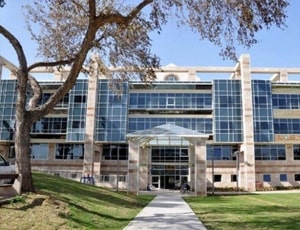
Kaplan Medical Centre located in Rehovot, Israel is accredited by JCI. Also listed below are some of the most prominent infrastructural details:
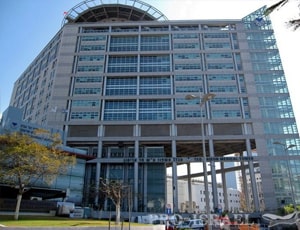
Tel Aviv Sourasky Medical Center -Ichilov Hospital located in Tel-Aviv, Israel is accredited by JCI. Also listed below are some of the most prominent infrastructural details:
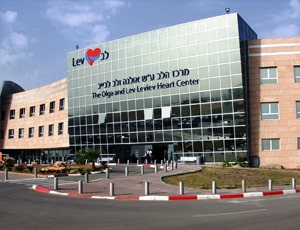
Sheba Medical Center located in Tel-Hashomer, Israel is accredited by JCI. Also listed below are some of the most prominent infrastructural details:
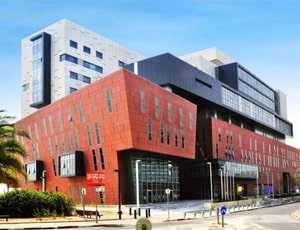
Assuta Hospital located in Tel-Aviv, Israel is accredited by JCI. Also listed below are some of the most prominent infrastructural details:
Lung cancer is an uncontrolled growth of cells that start off in the lungs. Usually, lung cancer starts in the cells that line the air passages. Instead of developing into healthy lung tissue, the cells divide rapidly and form tumours.
Lung cancer can grow and spread beyond the lung to reach other parts of the body through metastasis. Lung cancers can begin in any part of the lung, but 90 percent of lung cancers begin in the epithelial cells, which are the cells lining the larger and smaller airways also known as bronchi and bronchioles.
This is the reason why lung cancers are sometimes called bronchogenic cancers or bronchogenic carcinomas. Lung cancer is the most common cancer in the world, among both men and women. It is the leading cause of cancer deaths worldwide.
Long-term smoking is the main cause of lung cancer. After smoking, genetic factors and exposure to radon gas, asbestos, second-hand smoke or other forms of air pollution can also increase the risk of lung cancer.
There are two major types of lung cancers, based on the appearance of lung cancer cells under the microscope:
It is necessary to determine the stage of lung cancer by finding out how far cancer has spread, before initiating treatment of lung cancer.
The following are the four lung cancer stages of NSCLC:
After the determination of stage, treatment of lung cancer starts with choosing the best suitable option for the patient. However, there is usually no single treatment for lung cancer. So the patient often receives a combination of therapies and palliative care.
Lung cancer symptoms may vary, depending upon where and how widespread the tumour is. A person with lung cancer may have following lung cancer symptoms:
The treatment of lung cancer may include the following modalities:
Surgery is the best treatment if the lung cancer is in its early stages. In the early stages, it is possible to cure a patient completely by removing the tumor and the nearby lymph nodes. But after cancer has spread, it is nearly impossible to remove all of the cancer cells with the help of surgery.
There are some specific types of surgical procedures for different location and kinds of lung cancers, such as wedge resection of the lung (removal of a portion of one lobe), lobectomy (removal of one lobe), pneumonectomy (removal of an entire lung) and lymphadenectomy (removal of lymph nodes in the region of the lungs). After the surgery, margin tissues are further studied to see if cancer cells are present or not.
Lung cancer surgery is a major surgical procedure that requires hospitalization, general anesthesia, and follow-up care for a few weeks to several months. It also carries side effects like any other surgery, including complications related to bleeding, infection, and general anesthesia.
This treatment uses high-energy X-rays or other types of radiation to destroy or shrink lung cancer tumors. Radiation therapy can be given as a curative therapy, palliative therapy, or as adjuvant therapy combined with surgery or chemotherapy.
Radiation therapy damages the molecules that make up the cancer cells. However, it can damage the normal, healthy tissues. But nowadays improved technology can focus the radiation on precise locations for certain lengths of time, thus reducing the risk of damage to the surrounding healthy tissues.
Chemotherapy is a strong medication treatment, which interferes with the cell division process and damage proteins or DNA to reduce cancer cells. NSCLC and SCLC, both types of lung cancers can be treated with chemotherapy. Chemotherapy might be given in the form of pills, intravenous infusion, or as a combination of both.
However, drugs used in chemotherapy also kill normally dividing cells in the body that may lead to unpleasant side effects. Some of the common side effects of chemotherapy are vomiting, diarrhea, appetite loss, hair loss, fatigue, anemia, infections and more. These side effects may be felt temporarily during treatment, and several drugs exist to help patients cope with the symptoms.
Drugs used in this treatment work by targeting specific abnormalities in the cancer cells. Some of the drugs in this treatment can also strengthen the activity of the immune system against cancer cells. But mostly this treatment only works in people whose cancer cells show certain genetic mutations.
Ask your healthcare adviser for the best multiple options and choose the one that meets your expectations
The minimum cost of Lung Cancer Treatment in Herzliya is about $20000. Many multispeciality hospitals which are JCI certified are approved to operate a Lung Cancer Treatment in Herzliya.
The Lung Cancer Treatment package cost in Herzliya varies from one hospital to another and may offer different benefits. The Lung Cancer Treatment package cost usually includes all the expenses related to pre and post surgery expenses of the patient. Typically, the package cost of Lung Cancer Treatment in Herzliya includes the expenses related to the surgeon's fee, anesthesia, hospital, meals, nursing and ICU stay. A prolonged hospital stay due to delayed recovery, new diagnosis and complications after surgery may increase the cost of Lung Cancer Treatment in Herzliya.
Many hospitals in Herzliya perform Lung Cancer Treatment. Some of the best hospitals for Lung Cancer Treatment in Herzliyainclude the following:
After discharge from the hospital, the patient has to stay for another 40 days in the country for complete recovery. This duration of stay is recommended to complete all the necessary follow-ups and control tests to ensure that the surgery was successful.
Herzliya is considered to be one of the best places for Lung Cancer Treatment in the world. This is because of the availability of some of the best doctors, advanced medical technology and good hospital infrastructure. Some of the other destinations that are popular for Lung Cancer Treatment include the following:
Apart from the Lung Cancer Treatment cost, the patient may have to pay for additional daily expenses such as for guest house after discharge and meals. The per day extra expenses in Herzliya per person are about 75 USD.
After Lung Cancer Treatment surgery, the patient is supposed to stay for about 5 Days in the hospital for recovery and monitoring. The doctors team review the patient's recovery during this time with the help of blood tests and imaging scans. Once they feel that everything is on track, the patient is discharged.
There are around 1 Hospitals hospitals in Herzliya that offer Lung Cancer Treatment to international patients. These hospitals have the required infrastructure and a decided Lung Cancer Treatment unit where renal failure patients can be treated. These hospitals comply with all the rules and regulations as dictated by the regulatory bodies and medical association in Herzliya
Some of the most sought after doctors for Lung Cancer Treatment in Herzliya are: